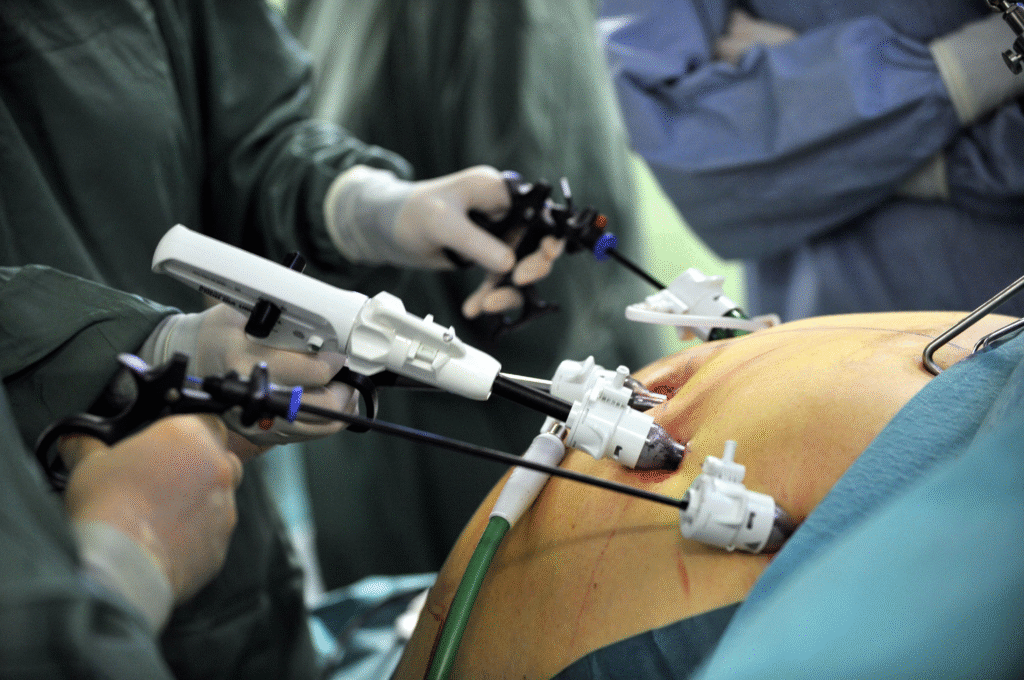What You Should Know about Bariatric Surgery?

I recently delivered a health talk on Healthy Eating at a corporate company. At the end, of the talk, the floor was open to Q & A and one of the staff commented that they have tried everything and still cannot lose weight. Hence, they intend to go for bariatric surgery.
Though bariatric surgery seems like an easy option, the side effects are many as a part of the stomach or intestine is resected. Digestion is also no more the same and many regain the weight that they lost within 2 years post-surgery.
There are a few types of bariatric surgery, and the most common ones are:

a) Roux-en-Y Gastric Bypass (RYGB)
- Creates a small stomach pouch and bypasses a portion of the small intestine.
- Reduces calorie absorption and limits food intake.
- Effective for significant weight loss and improving obesity-related conditions.
b) Sleeve Gastrectomy (Gastric Sleeve)
- Removes about 75-80% of the stomach, leaving a narrow tube or “sleeve.”
- Restricts food intake and reduces hunger hormones.
- Popular due to effectiveness and fewer complications than RYGB.
c) Adjustable Gastric Banding (Lap-Band)
- Places an adjustable silicone band around the upper stomach.
- Creates a small pouch to restrict food intake.
- Less invasive but less common now due to lower long-term success.
d) Biliopancreatic Diversion with Duodenal Switch (BPD/DS)
- Combines sleeve gastrectomy with bypassing a large part of the intestines.
- Limits food intake and nutrient absorption.
- Very effective but with higher risk of nutritional deficiencies.
e) Intragastric Balloon (least effective)
- A balloon is placed in the stomach and inflated to reduce space.
- Non-surgical, temporary, usually for 6 months.
- Helps reduce hunger and food intake.
In my years as a dietitian, I have encountered a few patients who are scheduled to go for bariatric surgery. To qualify for bariatric surgery in a government hospital, one needs to have:
a) Body Mass Index (BMI):

- BMI ≥ 40 (severe obesity), or
- BMI between 35 and 39.9 (obesity) with one or more serious obesity-related health conditions, such as:
- Type 2 diabetes
- Hypertension (high blood pressure)
- Sleep apnea
- Severe arthritis
- Heart disease
b) Age:
- Usually between 18 and 65 years old.
- Some programs consider younger or older patients case-by-case.
c) Previous Weight Loss Attempts:
- Documented history of unsuccessful attempts to lose weight through diet, exercise, or medication.
d)Medical and Psychological Evaluation:
- Must be physically healthy and mentally balanced to undergo the surgery and to deal with the post operative effects.
- No untreated or uncontrolled psychiatric disorders or substance abuse.
In the private hospital setting, the criterions are much more relaxed. Also, insurance providers may not cover such surgeries as it may be deemed as a cosmetic procedure.
Many look forward to the weight loss induced by bariatric surgery, but no one tells them, that pre-operation, they need to go on:

- 2–4 weeks before surgery: A low-calorie, high-protein diet
- 1–3 days before surgery: Clear liquids only
There is also post-operative diet which is:

- 1-3 days post-surgery: Clear Liquids (water, clear broth, electrolyte drinks)
- 4-14 days post-surgery: Full Liquids (creamy soup, yogurt, low fat milk)
- Week 3-4: Pureed Foods (Weeks 3–4) (soft boiled eggs, pureed sweet potatoes and fruits)
- Weeks 5-6: Soft Foods (Weeks 5–6) (lean meats, soft fish, tofu)
- Week 7 onwards: Regular (Solid) Foods
This type of diets is no easy feat.

For those that need bariatric surgery, the changes are promising provided a good lifestyle is maintained. Here are some benefits about bariatric and also must know:
🧠 1. It Changes Hormones, Not Just Stomach Size

Bariatric surgery isn’t just about making the stomach smaller — it also alters gut hormones that regulate hunger, satiety, and blood sugar. For example, ghrelin, the “hunger hormone,” is significantly reduced, often leading to a dramatic drop in appetite.
🦠 2. It Alters Your Gut Microbiome
Post bariatric, an improvement of the good gut bacteria composition may further support weight loss by increasing satiety and boosting metabolism.
💉 3. It Can Reduce Risk of Diseases
Post bariatric surgery, the elevated blood sugar levels of many go down and some have had their diabetes go into remission. This is due to improved insulin sensitivity.
Obesity increases the risk of many cancers. Hence, bariatric surgery can reduce inflammation and erratic hormone levels in the body which can fuel growth of cancer cells.
🩺 4. It’s Safer Than Many People Think
Most bariatric surgeries are safe and complications are uncommon. Post-operative mortality rates range from 0.03% – 0.2%.
🚫 5. It’s Not a Magical Solution— Lifestyle Still Matters
Surgery drives weight loss but it is not a solution to your weight predicament for a lifetime. Diet, exercise and an overall lifestyle will help keep the kilos off.
💊 6. Lifelong Supplements are needed

Most of the bariatric surgeries affects nutrient intake by the intestines into the body. Hence, many will need to add supplements to their diet to prevent deficiencies.
Reference:
1. Benefits and Risks of Bariatric Surgery in Adults: A Review. JAMA Network.







